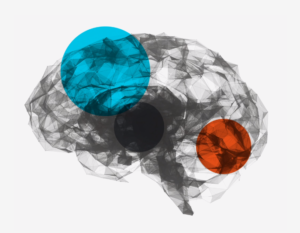
Meet Diane Bryant, a Datanami Person to Watch for 2021

You might know Diane Bryant as the server boss at Intel, or more recently as the COO of Google Cloud. But today Bryant is helming the healthcare AI company NovaSignal, which is seeking to improve care for stroke victims, among other use cases. Datanami recently caught up with Bryant, who is one of our People to Watch for 2021.
Datanami: You have had an amazing career, including 32 years at Intel. How did that prepare you for your role as CEO of NovaSignal?
Diane Bryant: First is the insight into the value of data. I led the Data Center business at Intel from the early days of cloud computing through the explosive industry-wide investment in AI. Through the low cost and pervasive nature of cloud computing it became possible to utilize data to inform business operations and to create new business opportunities. Data became a source of value. In joining NovaSignal it was instantly clear that the cerebral blood flow data being collected through our robotic-AI ultrasound system was a source of tremendous untapped opportunity. Within the first three months we reshaped our corporate strategy and product roadmap to leverage our unique data sets. Through accumulation and analysis of cerebral data we provide insight into the diagnosis of stroke, use predictive analytics to guide the clinical team, and create algorithms that detect illnesses that present themselves in the brain.
The second, more fundamental capability I acquired over 32 years at Intel was leadership skills. When I joined Intel our CEO was Andy Grove. Andy is renowned for his management philosophy documented in the 1985 best seller “High Output Management”. Intel’s success was rooted in a structured approach: a focus on leveraging the full expertise of the organization, holding each other accountable to achieve our collective best, and succeeding through transparency and inclusion. Andy’s management style formed my own style – a result impossible to escape given the strong culture he created at Intel. Upon joining NovaSignal I found a collection of highly talented individuals. The intellectual capacity of the organization was superior. What was lacking was leadership and operational structure. On my first day as CEO, I told the founder and inventor, Robert Hamilton, “You have created the most challenging elements of a successful company: the invention and the marketing demand. What’s left is the easy stuff: operational excellence.” And in one year we have transformed the company into an entity I believe Andy would applaud.
Datanami: We have not seen AI adopted as widely in healthcare as we have in other industries, such as financial services. What do you attribute that slower uptake to, and how can NovaSignal help to change that?

One neurologist stated that “NovaSignal has brought cerebral ultrasound into the 21st century.” (Image source: NovaSignal)
Bryant: Each industry sector has adopted technology and AI at different rates. We have been talking about “the digitization of business” for over a decade and yet many industries are still in the early-adopter phase. The financial industry was the first to move to technology-based operations. Implementation occurred in the late nineties as the internet emerged as a capable communication system for enterprise. The speed of adoption by the finance industry was driven by the clear and compelling ROI. The move from manual transactions on the trading floor to high-frequency trading came with huge financial gains. The subsequent application of predictive analytics (AI) to financial trading brough further gains.
The healthcare industry has irrefutably been the last major industry to “digitize”. At the highest level, the reason is that change is hard. Change begins with a compelling reason, either tremendous opportunity (as was with the financial industry) or devastating loss. Over time it has been demonstrated that the integration of technology into medical workflows delivers unquestioned gains: from the disruption in healthcare through telemedicine, the dramatic increase in the consumerization of healthcare with devices and apps, and the early adoption of AI in countries like China compelled by a significant shortage of healthcare professionals. We have at last reached the tipping point of technology adoption in healthcare.
Once a compelling reason for change is made, the second step is a tangible and viable path to achieve success. At NovaSignal we have delivered the solution – through technology – to create the biggest breakthrough in neurological care in our lifetime. This may sound bold, but the void is immense as demonstrated by the number of people who suffer today. As one neurologist stated, “NovaSignal has brought cerebral ultrasound into the 21st century.”
Datanami: These are eventful times to be in the AI and robotics business. What excites you the most about the potential for change in how we approach healthcare? Conversely, what keeps you up at night?
Bryant: There has never been a more exciting time to be an entrepreneur in healthcare.
Countless healthcare industry surveys state the top spending priority for 2021 is AI and the use of data to drive improved outcomes. Electronics, data and AI are and will continue to change the way care is administered resulting in improved patient outcomes. At NovaSignal we are focused on enabling the diagnosis of stroke, the leading cause of life-time disability worldwide. We all know someone that has suffered a stroke and it is painful to watch the debilitating change in their lives, particularly difficult given the vast number of effective treatments of stroke. Through robotics, AI and cloud-based computing we have the ability to easily and rapidly identify the existence of stroke-causing events by providing a window into the brain. We are a company that intends to succeed financially, but we come to work each day to save lives.
Datanami: Outside of the professional sphere, what can you share about yourself that your colleagues might be surprised to learn – any unique hobbies or stories?
Bryant: My latest hobby (obsession) emerged through the fate of my friends. I noticed a disturbing trend: my busy executive girlfriends were falling. One friend fell down cement stairs on her way to give a conference keynote, breaking her tailbone. A friend fell off her bike and broke her collar bone. And another fell while simply walking down the sidewalk, catching her heel, and breaking her ankle. I realized we were getting old. It was clear I would be the next to go if I didn’t invest in gaining flexibility and core strength. For the past two years I have religiously attended yoga class two times a week. I am not yet a yogini – and I do fall every now and then – but I have managed to emerge unscathed.
Bryant is one of 12 Datanami People to Watch for 2021. You can read the interviews with the other honorees at this link.


























